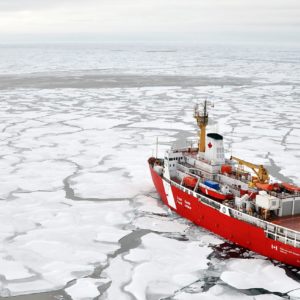The Stream, August 30: Rome Cuts Nighttime Water Pressure Amid Drought
The Global Rundown
Drought-stricken Rome, Italy plans to cut water pressure during the night on peak days. Fuel prices in the United States jump 4 percent as Hurricane Harvey forces Texas refineries shut down. Norway grapples with whether to allow oil drilling on the Lofoten Islands, which are estimated to hold 1.3 billion barrels of oil. A recent study shows that rising temperatures are steadily evaporating the Caspian Sea. A Palestinian boy in the Gaza Strip passes away after swimming in sewage-contaminated water.
“It’s hot and humid and there is no power, water or fans in the house. The sea is our only outlet.” –Ahmad al-Sayis, the father of five-year-old Mohammad, who died after swimming in the Gaza Strip’s polluted seawater. Raw sewage is flowing into the Mediterranean due to increasingly severe restrictions of Gaza’s electrical supply. Mohammad’s brothers were also hospitalized, but recovered from the poisoning. The Independent
By The Numbers
13 percent Proportion of U.S. refining capacity that is offline following flooding from Hurricane Harvey. Several major Texas refineries have decreased their output or shut down altogether. U.S. fuel prices have surged in response, and could continue to rise if more refineries are forced to limit operations. Reuters
$65 billion Estimated value of the oil that could be extracted from Norway’s Lofoten Islands. The archipelago is home to the world’s largest cold-water coral reef and mainland Europe’s biggest seabird colony. Currently, oil excavation around the islands is prohibited, but Norway’s two main political parties are lobbying for the ban to be lifted as the country’s oil production slows. The Economist
Science, Studies, And Reports
The Caspian Sea, earth’s largest inland body of water, has been gradually evaporating for the past 20 years. A study by the American Geophysical Union found that the Caspian Sea’s water levels declined nearly five feet from 1996 to 2005 due to rising temperatures associated with climate change. Science Daily
On The Radar
Beginning in September, the city of Rome will cut water pressure during the night on peak days. Rome has averaged 70 percent less rainfall this year than in the past three years, leading to water shortages. As Romans return from summer holidays, officials fear the impact of the drought will intensify. BBC
Kayla Ritter is a recent graduate of Michigan State University, where she studied International Relations and Teaching English to Speakers of Other Languages. She is currently based in Manton, Michigan. Kayla enjoys running, writing, and traveling. Contact Kayla Ritter




